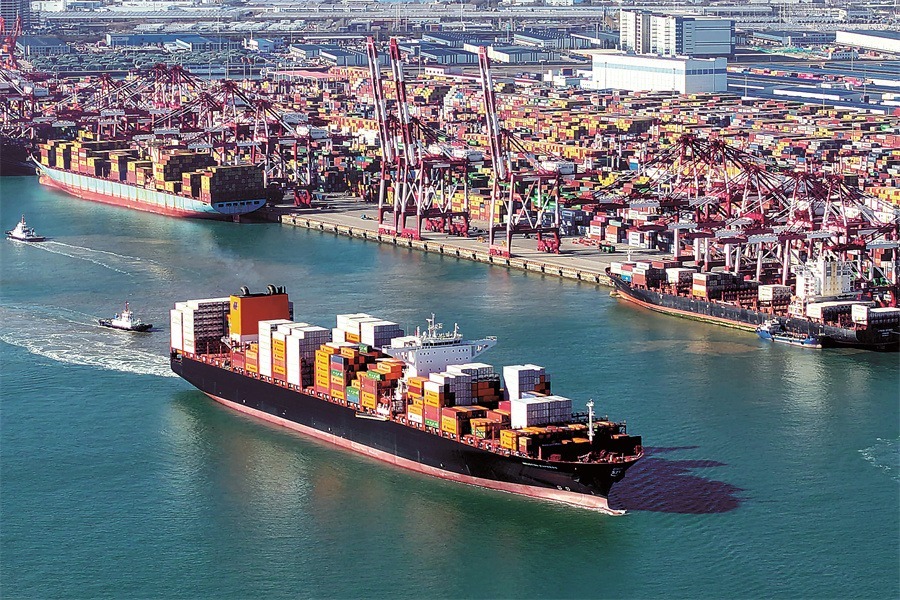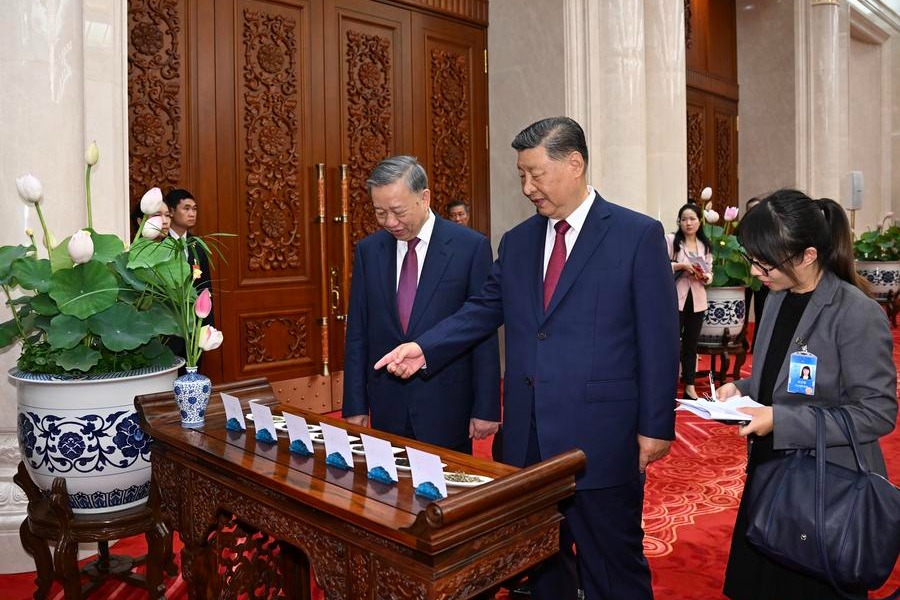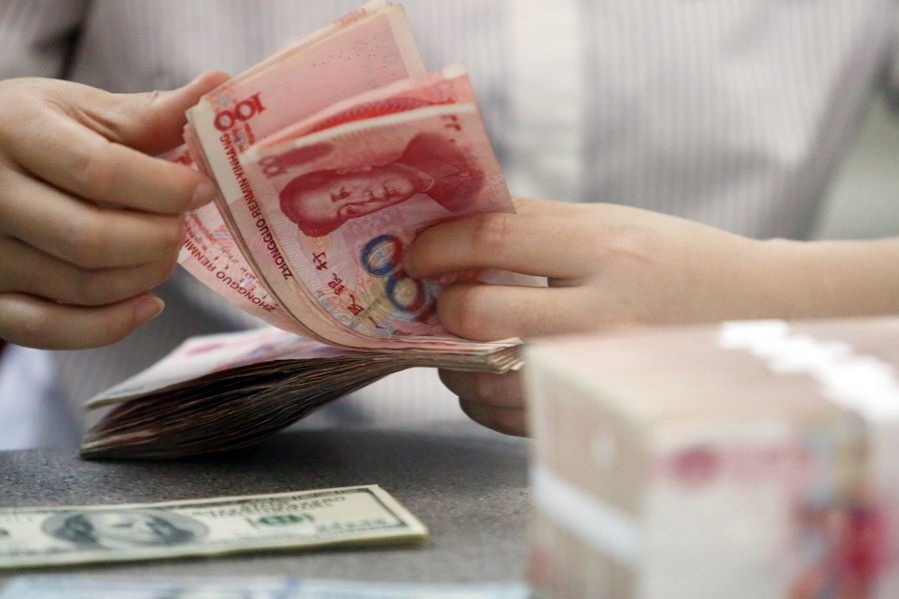Cooperation over confrontation


Trust, stability and mutual benefit should form the cornerstone of EU-China economic relations
President Donald Trump's return to the White House has brought Europe and China to a crossroads in their economic relationship. US protectionism — marked by sweeping tariffs and an "America First" agenda — is disruptive for global trade. With global supply chains facing greater uncertainty and economic growth fragile, the stakes for EU-China trade relations are high. This moment calls for laying emphasis on cooperation, joint ventures and stable frameworks over the inefficiency and long-term damage of tariffs and unilateral economic measures.
Unilateral economic measures erode trust and predictability — the very foundations of stable commerce.
In late 2024 and early 2025, trade tensions between the European Union and China escalated into a cycle of reciprocal tariffs. The EU imposed steep anti-subsidy duties — ranging from 17 percent to 35.3 percent — on Chinese electric vehicles, prompting Beijing to retaliate with anti-dumping duties on European brandy and investigations into EU agricultural exports. The conflict quickly expanded beyond EVs, with the EU targeting additional Chinese goods such as biodiesel, erythritol and titanium dioxide. In turn, China extended countermeasures affecting key European sectors, including pork and dairy.
However, trade imbalances cannot be addressed by imposing tariffs. They stem from deeper structural factors — such as comparative advantages, consumption dynamics, and supply chain specialization — that require targeted domestic reforms and international cooperation.
Rather than "winning" a better deal, punitive measures often lead to a breakdown of dialogue.
EU-China economic cooperation has immense potential when guided by stable agreements and mutual openness. Countless European companies operating in China report strong returns on investment, and Chinese enterprises expanding into Europe create local jobs and bring in needed capital. In 2024, against the headwind of global uncertainties, foreign investors continued to view China as a prime destination: establishing more than 59,000 new foreign-invested companies, a 9.9-percent increase year-on-year. Notably, the average return on foreign direct investment in China has been about 9 percent in recent years, among the highest in the world. These profits often flow back to European parent companies, supporting jobs and innovation at home. European businesses from automotive to luxury goods have thrived by partnering with China. The long-term benefits of engagement far outweigh the short-term gains some seek through protectionism.
The breakdown of reciprocity mechanisms between the EU and China in recent years has fed skepticism in both Brussels and Beijing. European stakeholders have long raised concerns about unequal market access — pointing out that Chinese companies often enjoy open access to EU markets, while European companies face restrictions in China. These concerns prompted the EU to insist on "reciprocity" and a "level playing field". Indeed, the EU-China Comprehensive Agreement on Investment negotiations were driven by a desire to lock in commitments on fair market access and investment protection. When the CAI was agreed in principle in late 2020, it was hailed as a breakthrough to address these issues. However, in 2021, mutual sanctions — initially sparked by human rights disputes — led the European Parliament to freeze ratification of the CAI, effectively shelving seven years of negotiators' work. This collapse demonstrated how political rifts can derail economic diplomacy. Both sides walked away with grievances: the EU felt China had violated norms by sanctioning elected officials, and China felt the EU was acting in bad faith under external (US) influence.
Rebuilding trust is paramount, and it is achievable through consistent, confidence-building measures.
First, both sides must improve communication and transparency. Misunderstandings often breed suspicion. For instance, European regulators worry about China's industrial policies and subsidies, while Chinese officials bristle at Europe's talk of "de-risking" as a cover for protectionism. Regular, frank dialogue can clarify intentions. The revival of high-level economic dialogue, as well as working groups on specific concerns, will help each side understand the other's red lines and find compromise solutions. Preventive diplomacy — solving irritants before they escalate — should be the mantra.
Second, Europe and China need to recognize their shared interest in a balanced geopolitical-economic order. Neither benefits from a bifurcated global economy or a new Cold War. The EU often describes China as partner, competitor, and rival simultaneously. Strategic competition will not disappear, but it need not preclude deep partnership in other arenas. In fact, maintaining engagement with China is part of Europe's strategy for strategic autonomy — ensuring it is not overly dependent on any one power, including the United States. Europe must prepare to withstand US pressure by articulating its own interests clearly. A balanced approach — where the EU coordinates with the US on legitimate concerns but also defends its right to dialogue and trade with China — will serve Europe best.
Finally, trust will grow when concrete positive results start flowing. Nothing builds confidence like success. If, for example, the EU and China manage to agree on a sectoral deal — say, a green tech partnership that eliminates tariffs on environmental goods and sets joint investment funds for clean energy projects — both sides will see proof that cooperation works, inspiring further collaboration. If China's recently announced 2025 Action Plan for Stabilizing Foreign Investment is implemented well and European companies visibly benefit, it will reassure EU investors that China is serious about openness. For its part, the EU can demonstrate goodwill by advancing investment agreement talks or reconsidering certain export control measures that most concern Beijing, in exchange for Chinese reciprocity. Step by step, such actions will rebuild a reservoir of trust that insulates the economic relationship from the vagaries of politics.
Trust, stability, and mutual benefit should form the cornerstone of EU-China economic relations as the world enters a period of uncertain geopolitics.
Furthermore, mixing commercial matters with security concerns is a grave strategic misstep. Trade should not become collateral damage in the pursuit of geopolitical positioning. The goal must not be to extract a short-term "deal" under the pressure of fleeting circumstances, but to build a resilient, forward-looking partnership rooted in mutual respect and shared prosperity. As Europe and China navigate an era of global uncertainty, their relationship must be guided not by reactionary impulses, but by the long-term vision of sustainable cooperation.
The success of EU-China trade relations will set a precedent for how open, rules-based cooperation can survive in an increasingly fragmented world.
The author is an adjunct professor at China University of Political Science and Law and a scientific expert for the EU-China Research and Innovation Dialogue. The author contributed this article to China Watch, a think tank powered by China Daily.
The views do not necessarily reflect those of China Daily.
Contact the editor at editor@chinawatch.cn.


































